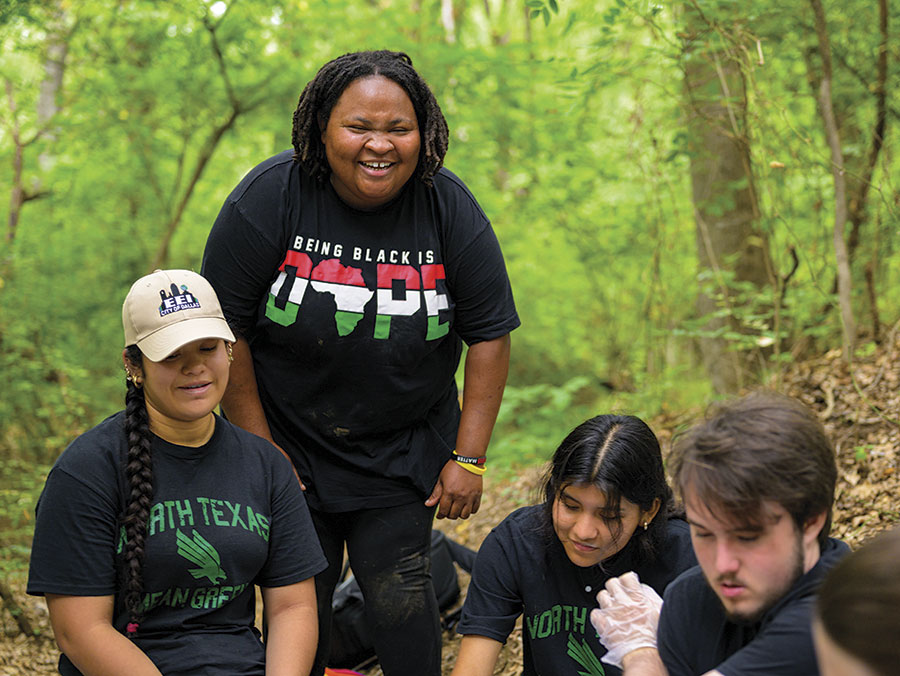
In her great-grandmother's garden, Krystal Toney has cherished childhood memories of playing among the flora, slipping lizards in her pocket and catching butterflies just to watch them soar away. Now studying environmental science at UNT, the doctoral student has gained a deeper knowledge of nature's interconnectedness. She's also discovered that access to nature is not the same for all.
As a Black woman, Toney has noticed people treat her and her family differently when they go out for walks or hikes. "It seemed like every time we would go to these natural spaces, we were criminalized," Toney says. "I went to social media to vent about it and other Black people commented and said, ‘Oh, it's the same for me, that's why I don't do it.'"
Those social media posts evolved into the blog "Black in Nature" where Toney sheds light on this inequity and quells the misconception that Black people aren't doing environmental work. Her efforts to elevate Black voices have led to speaking engagements and two children's books about bugs.
"I've realized that access to nature doesn't just mean opening the doors to go outside. It's about creating safe spaces for people of all backgrounds to feel comfortable being in natural environments," Toney says.
For her dissertation, Toney is exploring the disparities in access to conservation education and nature among Black and low socioeconomic students.
Toney hopes to land a job in environmental education. She's already gaining experience in that work through her role with the Dallas Environmental Education Initiative, a program created by College of Science associate professor Ruthanne "Rudi" Thompson. Her dream role would be serving as a program director for the Trinity River Audubon Center near where her great-grandmother's garden used to be in southeast Dallas.
"The community helped build that center, and I would love to see the residents more integrated with it. I want to create programs to get more people in tune with nature and environmental science."